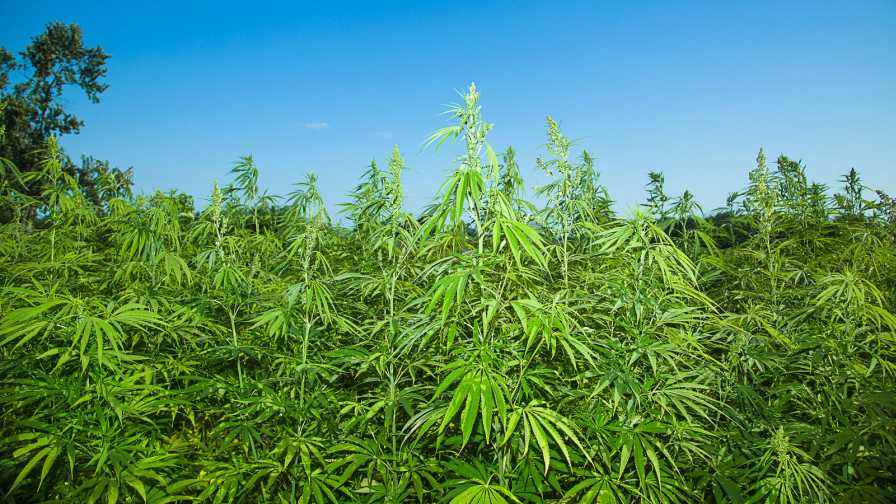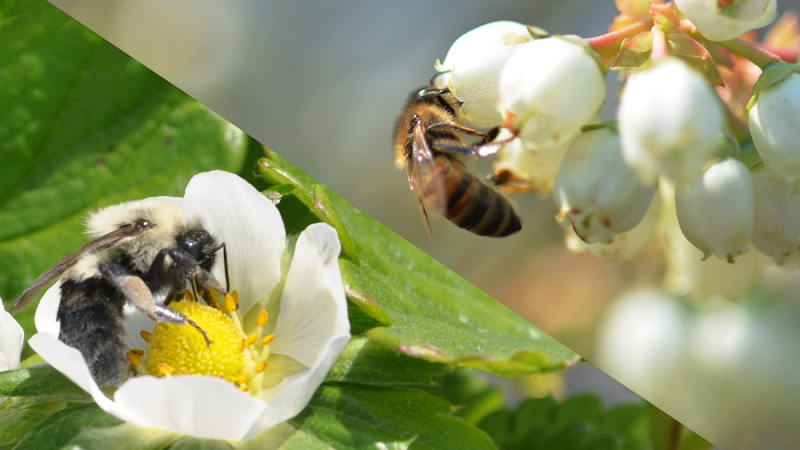Will it Fly? Senate-Backed Farm Bill Makes Way for Hemp Growth

Industrial hemp has made its way into the Senate’s version of the farm bill via language that would clear legalization hurdles for the plant and its producers. Photo courtesy of the University of Kentucky College of Agriculture, Food & Environment
Last month, the House version of the 2018 Farm Bill went down in flames over immigration policy issues. So, while it’s back to the drawing board for one set of lawmakers in preparation for a second vote, the Senate is now up to bat with its own draft of the farm bill (“Agriculture Improvement Act of 2018”). Among the expected differences between the chambers’ two bills, one portion of the Senate’s farm bill stands tall — and it has hemp written all over it.
A measure proposing the legalization of industrial hemp is listed at the very end of the 1,006-page document. The inclusion of this act should not come as a huge surprise as U.S. Senate Majority Leader Mitch McConnell (R-KY) introduced a bipartisan bill back in April that would remove hemp from the banned substances list and make the crop eligible for crop insurance.
Industrial hemp – a variety of the Cannabis sativa plant — has multiple known useful applications, such as for building materials, plastics, food, skin products, pain relief, and more. More than 30 land grant universities have been conducting field studies with industrial hemp since the 2014 Farm Bill allowed for such research effort. From the start, McConnell’s home state of Kentucky has been making a strong push to make industrial hemp a legitimate cash crop.
Naturally, interest is piquing for willing farmers. And while legal details proceed, there is still lots to learn about the alternative crop and its production needs, crop protection protocol, harvest methods, processing, etc. Cultivation basics aside, it’s important not to put the horse in front of the cart, says Josh Hendrix, a hemp industry consultant and business development team member for Las Vegas-based Plus CBD Oil.

Josh Hendrix
According to Hendrix, who works out of Kentucky, the most important thing prospective growers should know right now is that the hemp plant is still a controlled substance and requires a license to grow.
“This is confusing because hemp products are legal; but unless you have a license from your states’ department of agriculture to produce or process hemp, the plant and ‘live seeds’ that can produce live plants are still on the controlled substance act,” Hendrix explains. “This is important because it means that there is no crop insurance, no approved pesticides or herbicides, no ability to get financing or grants, etc.”
This major fact, plus the related hurdles farmers could face, might make the prospect of large-scale commercial industrial hemp production in the U.S. seem like a pipe dream. Hendrix points out this is why passage of the 2018 Hemp Farming Act is so vital. “I recommend anyone interested in hemp farming or processing or that just supports this alternative crop check out https://hempsupporter.com and help push this legislation forward so that hemp can be treated like all other crops and farmers can be given a full opportunity to produce this valuable commodity.”
After first glance of the Agriculture Improvement Act of 2018, the Specialty Crop Farm Bill Alliance is giving its approval. The organization released the following statement: “This legislation clearly reflects the growing importance of the specialty crop industry in American agriculture. The Alliance is particularly pleased to see the inclusion of a new program for citrus producers, increased funds for nutrition programs as well as the extension of many of the specialty crop provisions that were included in the 2014 Farm Bill.”
Do you think the Hemp Farming Act of 2018 will pass?
- Yes (91%, 233 Votes)
- No (9%, 23 Votes)
Total Voters: 256
Is the runway clearing for hemp farming to take off? The wording added to the Senate’s version of the farm bill has the enterprise pointed in the right direction, Hendrix concludes.
“The language set forth by Senator McConnell and others in the new farm bill is exactly what the hemp industry needs to push both the market and domestic production forward. By expanding on the already successful pilot programs and lifting some of the questionable restrictions, the production and processing models can expand, gain access to capital and government grants, as well as hopefully allowing farmers to gain crop insurance. This is all necessary because by clarifying hemp products as well, you’re going to see the market open up beyond the immense growth we’ve seen under the clouded and misguided interpretations of the current law.”
The fight for full hemp legalization is far from over though. U.S. Sen. Chuck Grassley (R-IA) filed a late amendment to the 2018 Farm Bill, which would explicitly exclude “cannabinoids,” “extracts,” and “derivatives” from the definition of hemp. This could mean that products such as hemp-derived cannabidiol (CBD) may be treated by the DEA as a Schedule 1 controlled substance.
[UPDATED, June 13] The Senate Agriculture Committee passed the bipartisan farm bill — without Grassley’s amendment. Despite the victory, the U.S. Hemp Roundtable is advising members, growers, related businesses, and supporters of hemp to remain vigilant as the legislation progresses to the next stages.









